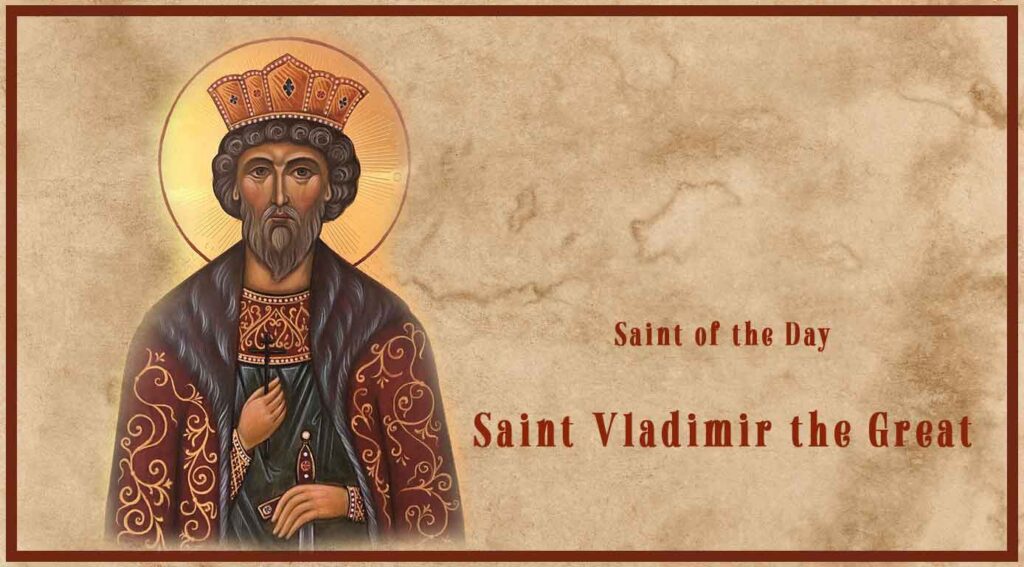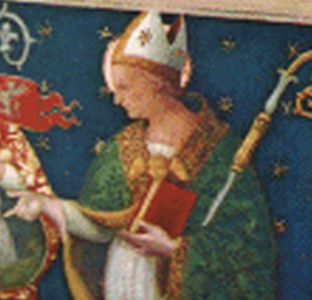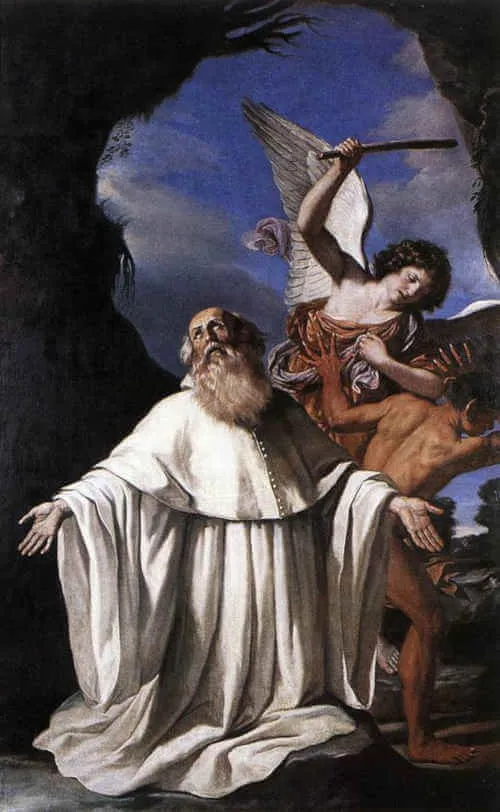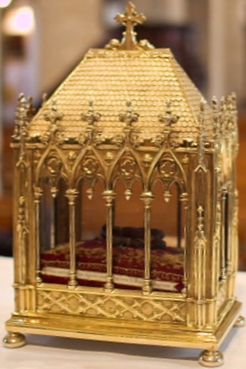Saint Vladimir was Prince of Novgorod and became ruler of Kievan Rus’ from 980 to 1015. He was born in 958 was the natural son and youngest son of Sviatoslav I of Kiev by his housekeeper Malusha. Hagiographic tradition of dubious authenticity also connects his childhood with the name of his grandmother, Olga of Kiev, who was Christian and governed the capital during Sviatoslav’s frequent military campaigns.
After the death of his father in 972, he was forced to flee to Scandinavia in 976 after his brother Yaropolk murdered his other brother Oleg of Drelinia. In Sweden, with the help of his relative Ladejarl Håkon Sigurdsson, ruler of Norway, he assembled a Varangian army and reconquered Novgorod from Yaropolk. By 980, Vladimir had consolidated the Rus’ realm to the Baltic Sea and had solidified the frontiers against incursions of Bulgarians, Baltic tribes and Eastern nomads.
In 987, after consultation with his boyars, Saint Vladimir reportedly sent envoys to study the religions of the various neighboring peoples whose representatives had been urging him to embrace their respective faiths. In 988, having taken the town of Chersonesus in Crimea, he allegedly boldly negotiated for the hand of emperor Basil II’s sister, Anna. In exchange for a marital tie, he also agreed to accept Christianity as his religion and to Christianize his people. When the wedding arrangements were settled, Saint Vladimir dispatched 6,000 troops to the Byzantine Empire, and they helped to put down the revolt.
During his Christian reign, Saint Vladimir lived the teachings of the Bible through acts of charity. He would hand out food and drink to the less fortunate, and made an effort to go out to the people who could not reach him. His work was based on the impulse to help one’s neighbors by sharing the burden of carrying their cross. He founded numerous churches, including the Desyatynna Tserkva (Church, or Cathedral, of the Tithes) (989), established schools, protected the poor and introduced ecclesiastical courts. He lived mostly at peace with his neighbors, the incursions of the Pechenegs alone disturbing his tranquility.








